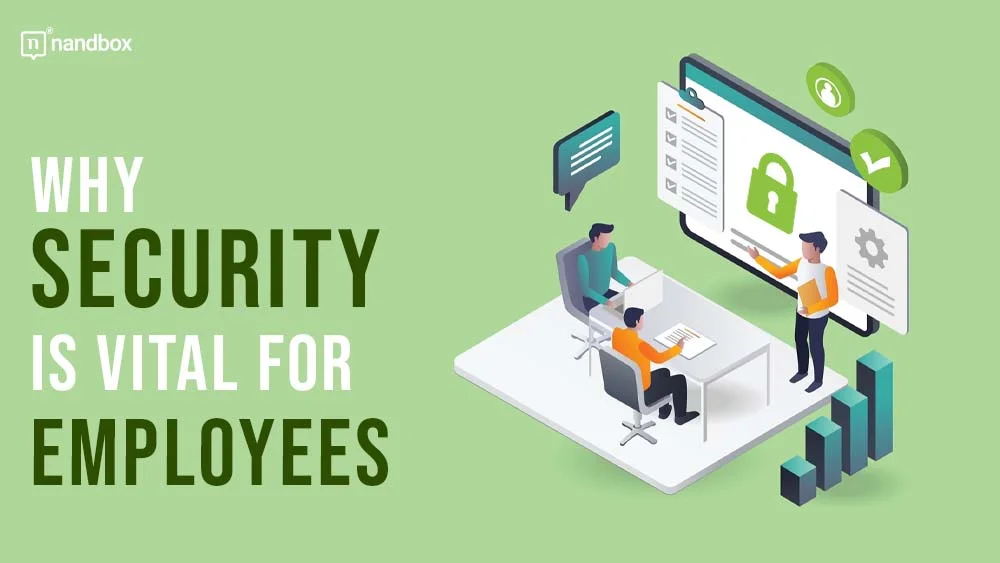Why Security is Vital for Employees: Understanding the Importance of Workplace Safety
Security is a crucial aspect of any organization, and it is essential to ensure the safety and protection of employees. In today’s digital age, where cyber threats are on the rise, it is more important than ever to prioritize security measures to safeguard sensitive information and prevent data breaches.
This includes implementing data masking techniques to protect sensitive data from unauthorized access. Effective data masking not only protects company data but also ensures employee security by preventing potential misuse of personal information. This article will explore why security is vital for employees and how it can benefit both the organization and the individual.
Employees are the backbone of any organization, and their safety and security should be a top priority. Providing a secure work environment not only ensures the well-being of employees but also helps to create a sense of trust and loyalty towards the organization. Security measures such as access control, surveillance, and cybersecurity protocols can help to prevent theft, violence, and cyber attacks, which can have severe consequences for both the individual and the organization.
In addition to physical and cyber threats, employees also need to be protected from internal threats such as harassment, discrimination, and bullying. Implementing policies and procedures to address these issues can help to create a positive work environment, boost employee morale, and increase productivity. By prioritizing security, organizations can create a culture of safety and trust, which can have a positive impact on both the employees and the organization as a whole.
- The Importance of Security for Employees
- Understanding the Risk Landscape
- Benefits of Employee Security
- Security Awareness and Training
- Conclusion
The Importance of Security for Employees
Security is an essential aspect of any workplace, and it is crucial for employees to understand its importance. Security measures are put in place to protect employees, the company, and its assets, and it is the responsibility of every employee to comply with these measures. A safe with high and safe burglary ratings provides peace of mind knowing that valuable assets are securely stored, deterring potential thieves and minimizing the risk of loss or damage. Therefore, investing in quality security equipment is a proactive step toward ensuring the safety and integrity of the workplace.
One of the primary reasons why security is important for employees is to ensure their safety. In today’s world, workplace violence, theft, and other security breaches are becoming increasingly common. Security measures such as access control systems, CCTV cameras, and security personnel can help prevent such incidents and keep employees safe.
Another reason why security is important for employees is to protect the company’s assets. Companies invest a significant amount of money in their assets, including equipment, data, and intellectual property management.. Security measures such as firewalls, encryption, and password protection can help prevent unauthorized access and protect these assets.
Moreover, security is important for employees to maintain the company’s reputation. A security breach can result in financial losses, legal action, and damage to the company’s reputation. Employees who comply with security measures can help prevent such incidents and protect the company’s reputation.
In conclusion, security is a vital aspect of any workplace, and it is the responsibility of every employee to comply with security measures. By doing so, employees can help ensure their safety, protect the company’s assets, and maintain its reputation.
Understanding the Risk Landscape
In the modern era, businesses are facing an ever-increasing number of security threats. These threats can come from both inside and outside the organization. Therefore, it is essential to understand the risk landscape to protect against these threats.
One of the most significant risks for businesses is cyberattacks. These attacks can cause significant damage to a company’s reputation and financial stability. In addition, cyberattacks can also lead to data breaches, which can result in the loss of sensitive information.
Another risk that businesses face is physical security threats. This can include theft, vandalism, and even violence in the workplace. To mitigate these risks, businesses need to implement security measures such as surveillance cameras, access control systems, and security personnel.
In addition to these risks, businesses also need to be aware of the risks associated with employee behavior. Employees can unintentionally cause security breaches by falling for phishing scams, using weak passwords, or accessing sensitive information on unsecured networks. Therefore, businesses need to educate their employees on the importance of security and provide training on how to identify and prevent security threats.
Overall, understanding the risk landscape is crucial for businesses to protect against security threats. By implementing the right security measures and educating employees, businesses can reduce the risk of security breaches and protect their assets.
Benefits of Employee Security
Ensuring employee security is crucial for any organization. It not only helps to protect the business, but it also has several benefits for employees themselves. Here are some of the key benefits of employee security:
1. Increased Productivity
When employees feel safe and secure in their workplace, they are more likely to be productive. They are able to focus on their work without worrying about their safety or the security of their belongings. This sense of security extends beyond physical safety to include digital security, especially in organizations dealing with sensitive information. Adhering to standards like CMMC compliance guidance ensures that both physical and digital environments are secure, enhancing overall employee confidence and productivity. This increased productivity can lead to better business outcomes and a more successful organization.
2. Improved Morale
Employee security can also improve morale. When employees feel that their employer cares about their safety and well-being, they are more likely to be satisfied with their job and their employer. This can lead to higher employee retention rates and a more positive work environment.
3. Reduced Absenteeism
Ensuring employee security can also help to reduce absenteeism. When employees feel safe and secure, they are less likely to miss work due to safety concerns or fear of violence. This can lead to a more consistent workforce and better business outcomes.
4. Better Health and Well-being
Employee security can also have a positive impact on employee health and well-being. When employees feel safe and secure, they are less likely to experience stress or anxiety, which can lead to better physical and mental health. This can result in a more productive and engaged workforce. Furthermore, robust human resource systems play a vital role in employee security. These systems can be used to manage access to sensitive information, track employee activity, and enforce security policies. By implementing these measures, organizations can help to create a safe and secure work environment for all employees.
In conclusion, employee security is essential for any organization. It not only helps to protect the business, but it also has several benefits for employees, including increased productivity, improved morale, reduced absenteeism, and better health and well-being.
Security Awareness and Training
Employee training and security awareness programs are critical components of any security strategy. Security awareness training helps employees understand the importance of security and the role they play in keeping the organization secure. It educates them on the risks and threats they may encounter and how to identify and respond to them.
Training should cover a wide range of topics, including password management, phishing, social engineering, and physical security. It should also address the proper use of company equipment and software, such as email and internet browsing.
Security awareness training should be an ongoing process. Employees should receive regular updates on new threats and risks and be reminded of the importance of following security policies and procedures.
In addition to training, organizations should also conduct regular security audits and assessments to identify areas of weakness and improve security measures. This may include installing CCTV cameras and cables to monitor and record activity in sensitive areas.
Overall, security awareness training is an essential part of any organization’s security strategy. It helps employees understand the importance of security and the role they play in keeping the organization secure. By implementing regular training and assessments, organizations can reduce the risk of security breaches and protect sensitive information.
Conclusion
In conclusion, security is a crucial aspect of any organization as it helps to protect employees from potential harm. It is important for employees to understand the significance of security measures and how they can help to keep them safe in the workplace.
By implementing security protocols, companies can reduce the risk of theft, violence, and other forms of harm that could negatively impact the well-being of their employees. Additionally, security measures can help to protect sensitive information and prevent data breaches, which can be costly and damaging for both the organization and its employees.
Overall, it is essential for employees to be aware of the importance of security and to take an active role in ensuring their safety. By following security procedures and reporting any suspicious activity, employees can help to create a secure and safe workplace environment.







